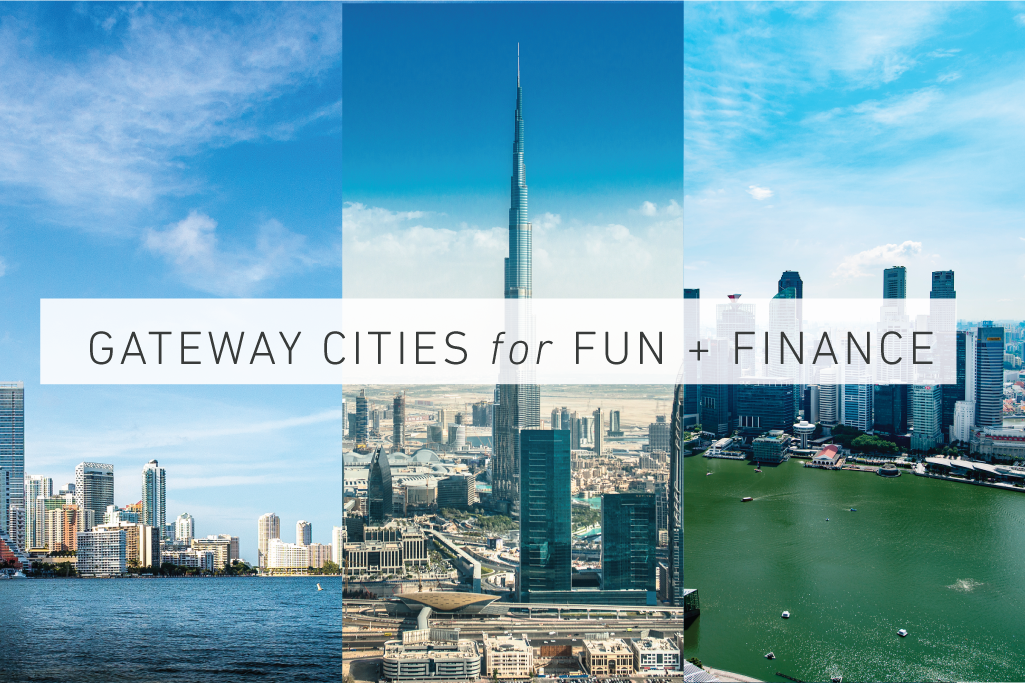A few years ago, I was invited to give my point of view on “The city of Miami’s uniqueness” at a National Christian Foundation meeting for church and business leaders in the greater Miami area. My proposition statement was that Miami holds the distinct privilege of being one of the three key gateway cities in our globalized-yet-connected world. Along with Singapore and Dubai, Miami ranks as one of the reigning “Fun and Finance” capitals beckoning for the migration of emerging wealth, influence and power of the global South.
As Latin America, Africa and Asia continue to expand their economic, educational and social strength on the global scene, Miami, Singapore and Dubai have become safe havens for banking and destination locations for the prosperous. Newfound wealth wants a stake of these gateway cities, as they provide secure harbor for capital and act as a respite from the corruption, instability and in many cases traditional values conflicting with the more progressive and permissive character of the West. As success and assets grow, families pursue security and seek out bastions of protection from the volatility and insecurity of developing nations.
There are reasons cities grow and prosper. The old adage “all roads lead to Rome” could be said of these geographic hubs where South meets North and East meets West.
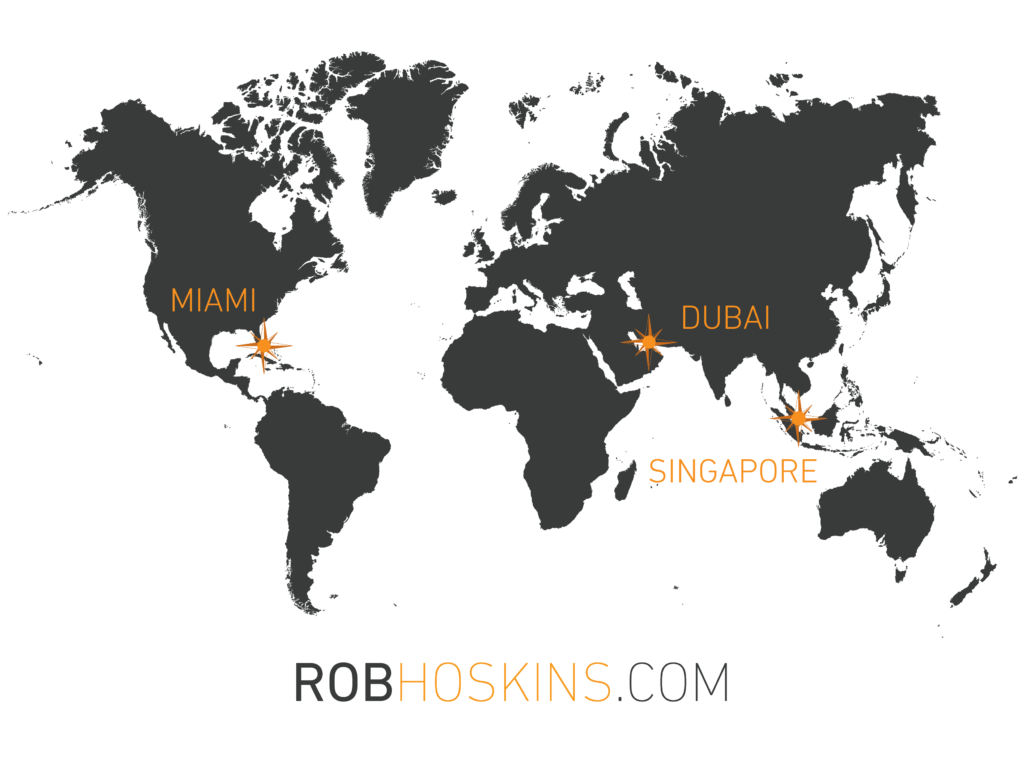
These three gateway cities are pioneers, capitalizing on the 21st-century realities before them. They are establishing legislation and marketing themselves to opportunistically seize the moment to welcome the nouveau riche to their shores. Not only are these cities aesthetically pleasing—surrounded by beautiful bodies of water—but they are continually expanding their airports and transportation hubs touting, “All are welcome. Bring your business, your money, and your family—you’ll be safe here.” Internationalization is encouraged and national identity downplayed for the sake of the shiny, attractive city-state beckoning all with open arms. It’s no accident that lucrative and enticing entities rife for investment and entertainment just happen to be housed here as well. They are fast becoming new city centers for global citizens comfortable with trading nationalistic interests for an emerging global culture.
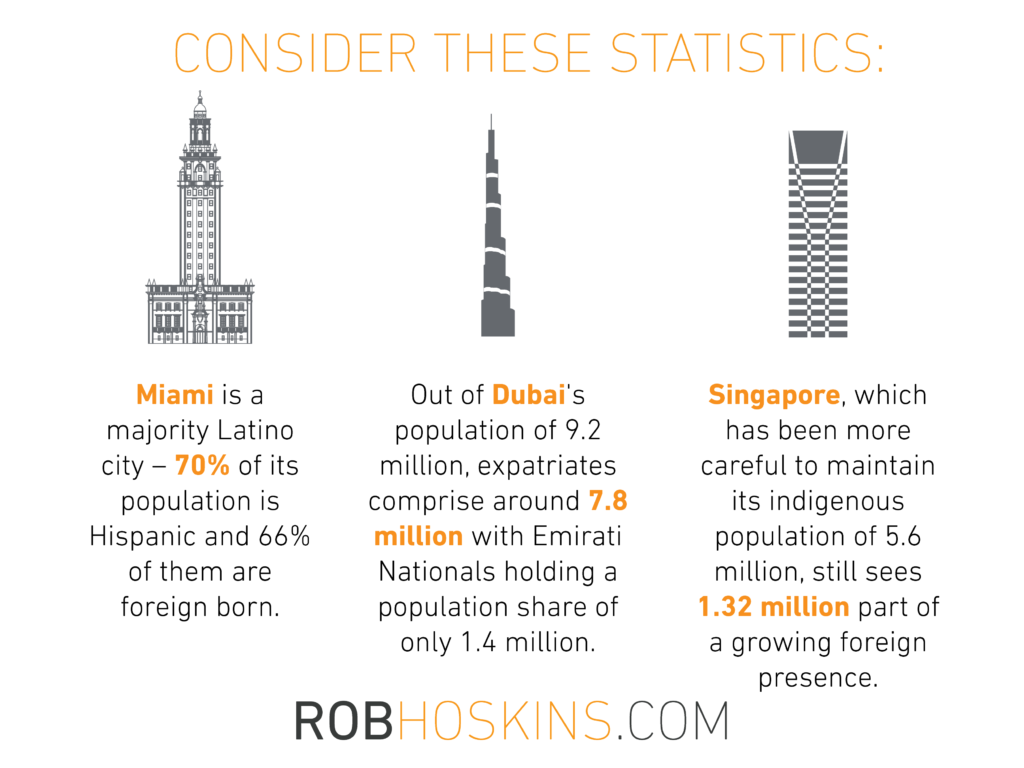
But all that glitters is not gold, and these same gateways siren-calling the rich also quietly beckon the poor, the tired, and the struggling masses to step onto their shores dangling the promise of an economic foothold upon arrival. With all the glitz and glamour of the Burj Arab, South Beach and Orchard Road, there is a dark underbelly that supports these modern-day Babels, characterized by gross economic disparity and thriving flesh trades.
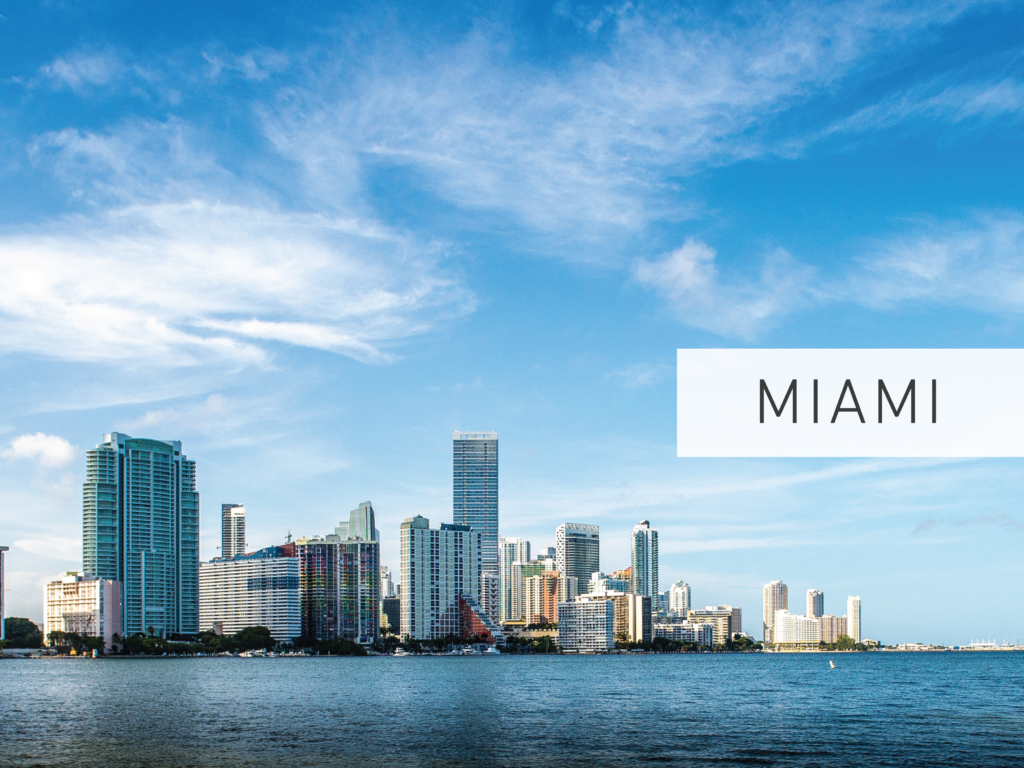
Miami was recently cited as the most economically unbalanced city in the U.S [2]. Few tourists have ever seen “Sonapur” (ironically translates “City of Gold” in Hindi) a work camp of 150,000 people living in squalor, filth and blistering heat on the outskirts of Dubai. Many came here to find fortune and are returned to their villages in body bags—not the triumphal re-entry they imagined.
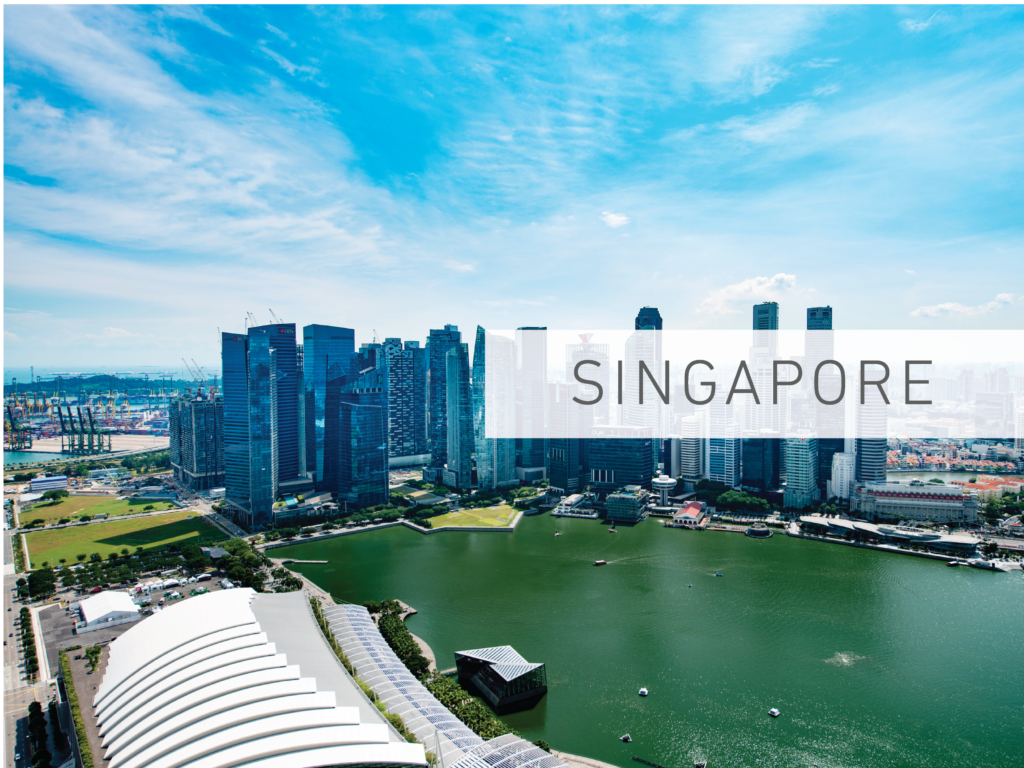
[3] Singapore with its reputation for high-minded morality is not immune to this reality either. While it enjoys an average per capita income of over $52,000, with the highest concentration of millionaires in the world, this city is also home to 105,000 families who scrape out a living on $5 a day. The rich want to have fun and do so on the backs of the poor. The service industry that supports tourism is staffed from the most readily available, lowest-paid help who are struggling to survive in slums deftly hidden from the courted corporate view.
[Tweet “The rich want to have fun and do soon the backs of the poor.”]
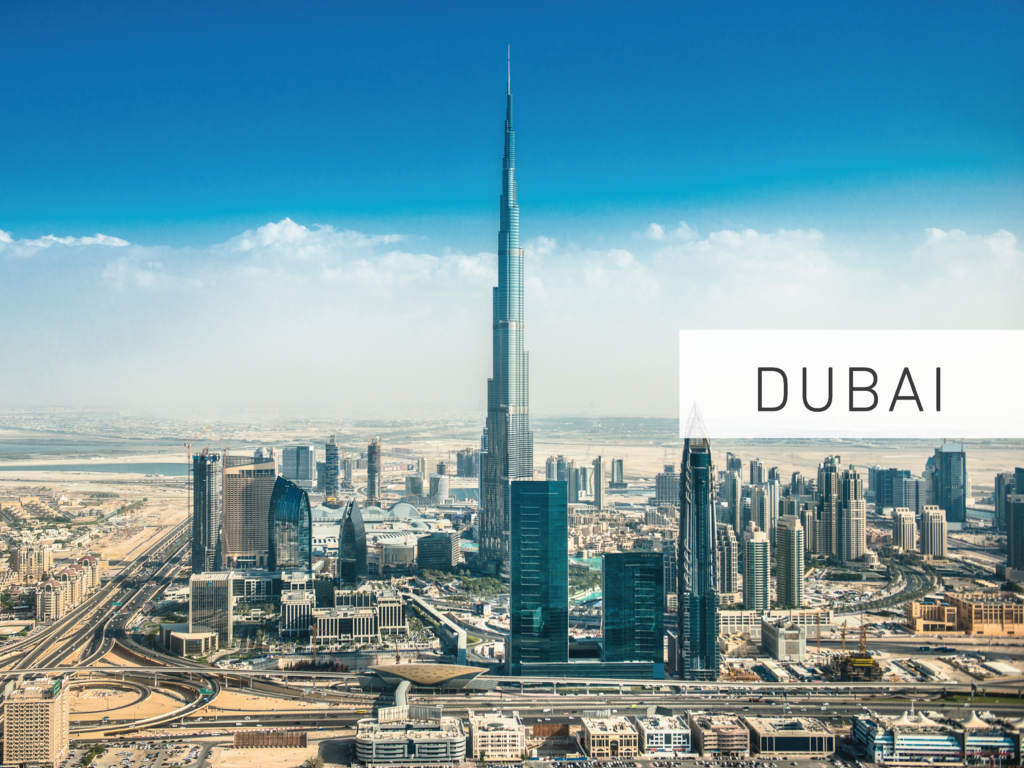
All three cities have a permissive posture towards prostitution that enslaves thousands of the world’s poor. From high-end call girls to seedy backroom brothels for the migrant poor, sex is always for sale. And the politically powerful turn a blind eye for the sake of economic profit and pleasure-seeking expediency.
Ironically all three cities have a veneer of socio-religious conservatism: for Miami, Latino Catholicism; for Singapore, Chinese legalism; and in Dubai of Islam.
But make no mistake—this apparent temperance is a thin curtain for appearance’s sake alone. Long ago the city leaders decided to forfeit traditional values for a pluralistic and relativistic worldview that allows any ideology except fundamentalism to co-exist in a strange multi-cultural dance of excess and ecstasy.
It is not coincidental that the narrative of these capitals resembles the ancient city of Babylon in Scripture.
“Like Nimrod, a mighty hunter before the LORD. The centers of his kingdom were Babylon, Erech, Akkad and Calneh in Shinar.” (Genesis 10:8)
It is a prophetic reality that Nimrod, the father of civilization, rebelliously raises his fist—not in worship to God—but in defiance to declare, “We will make a name for ourselves” (Genesis 11:4).
This declaration is at the spiritual root of urbanization and globalization. The spirit of the age is wrapped up in the ethos of these three new gateway cities.
[Tweet “What should be the Church’s response to 21st-century gateway cities?”]
What should be the Church’s response to 21st-century gateway cities like Miami, Dubai and Singapore? While the overtly secular nature of these cities projects an obstacle, they are actually tremendous opportunities for evangelism, discipleship and church planting. No truth is allowed to dominate in Babylon. Instead, all truths are given a modicum of leeway to survive for the sake of hospitable tolerance.
[Tweet “The Church needs to rediscover arobust theology of city.”]
The Church needs to rediscover a robust theology of city. Understanding our times is the first step towards fulfilling our responsibility to provide faith, hope and love for these burgeoning urban meccas. And we must also be prepared to stand against the spirit of Babel that eschatologically is our future and our destiny as the kingdoms of this world become the Kingdom of our Lord and Christ.
[1] http://www.nbcnews.com/news/latino/not-just-cubans-many-latinos-now-call-miami-home-n37241
http://www.guide2dubai.com/visiting/tourist-information/uae-population
http://www.bbc.com/capital/story/20150311-why-expats-call-this-utopia
[2] http://www.bloomberg.com/news/articles/2016-10-05/miami-is-the-newly-crowned-most-unequal-city-in-the-u-s
[3] http://www.dailymail.co.uk/news/article-2859734/The-Dubai-DON-T-want-tourists-Photos-desperate-conditions-endured-migrant-labourers-forced-work-50C-heat-pittance.html
